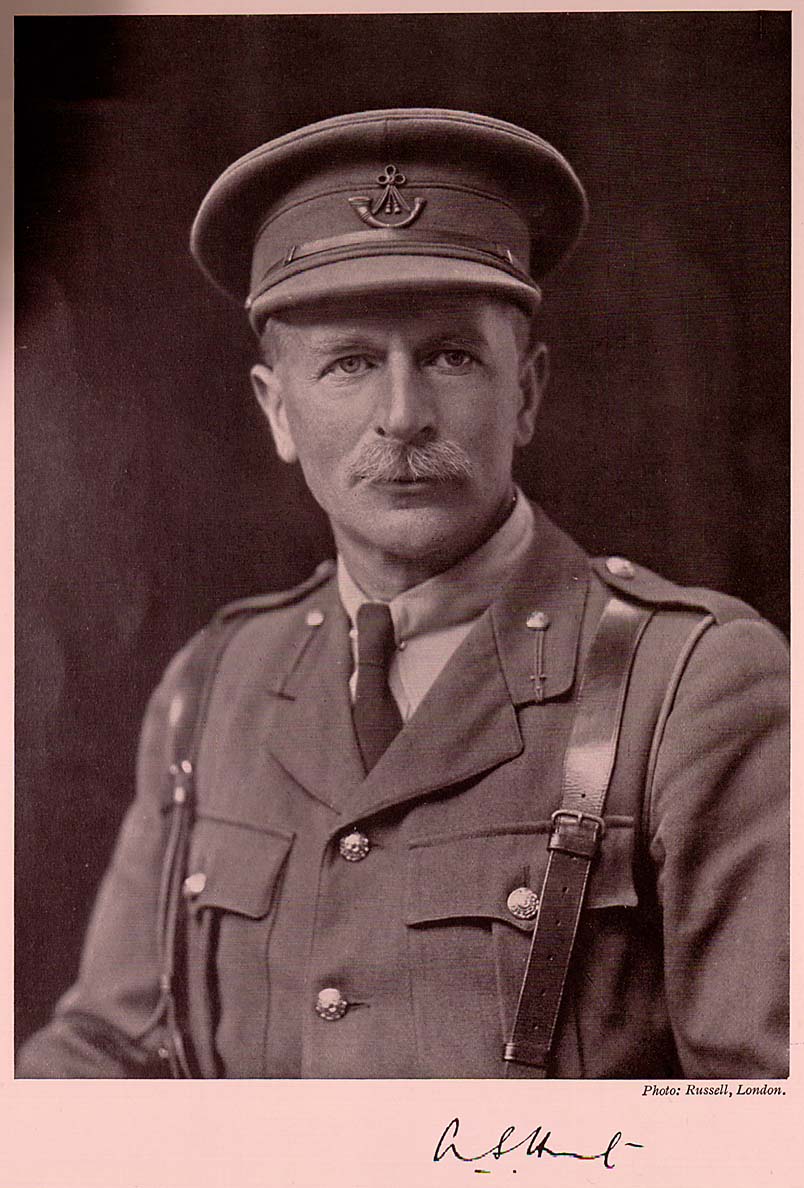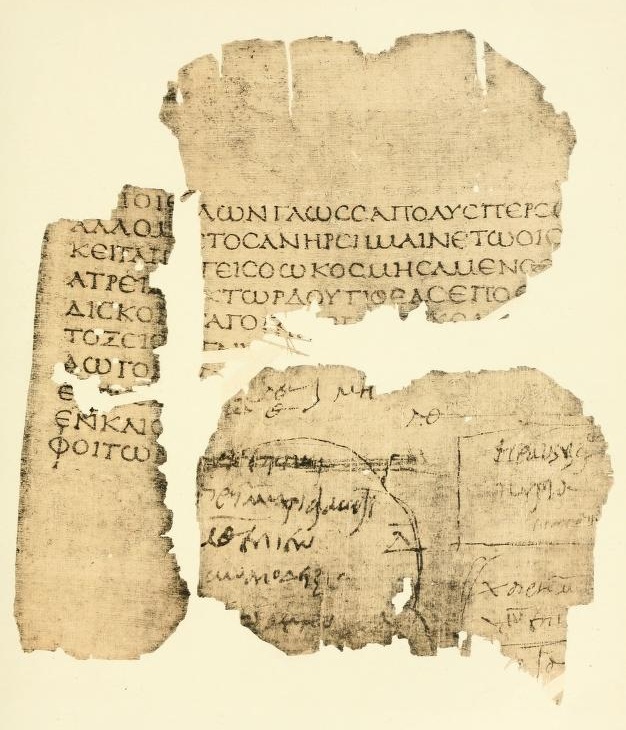|
Papyrus Oxyrhynchus 232
Papyrus Oxyrhynchus 232 (P. Oxy. 232 or P. Oxy. II 232; also known as P.Lond.Lit. 128 and Pap.Flor. VIII 35; TM 59591; LDAB 693) is a fragment of ''Contra Timocratem'' by Demosthenes, written in Greek. It was discovered in Oxyrhynchus. The manuscript was written on papyrus in the form of a roll. It is dated to the second or third century. Currently it is housed in the British Library (Department of Manuscripts, 787) in London.P. Oxy. 232 at the Oxyrhynchus Online Description The document was written by an unknown copyist. It contains the text of '' Contra Timocratem'' (53-54, ...[...More Info...] [...Related Items...] OR: [Wikipedia] [Google] [Baidu] |
Demosthenes
Demosthenes (; el, Δημοσθένης, translit=Dēmosthénēs; ; 384 – 12 October 322 BC) was a Greek statesman and orator in ancient Athens. His orations constitute a significant expression of contemporary Athenian intellectual prowess and provide insight into the politics and culture of ancient Greece during the 4th century BC. Demosthenes learned rhetoric by studying the speeches of previous great orators. He delivered his first judicial speeches at the age of 20, in which he successfully argued that he should gain from his guardians what was left of his inheritance. For a time, Demosthenes made his living as a professional speechwriter ( logographer) and a lawyer, writing speeches for use in private legal suits. Demosthenes grew interested in politics during his time as a logographer, and in 354 BC he gave his first public political speeches. He went on to devote his most productive years to opposing Macedon's expansion. He idealized his city and st ... [...More Info...] [...Related Items...] OR: [Wikipedia] [Google] [Baidu] |
Rough Breathing
In the polytonic orthography of Ancient Greek, the rough breathing ( grc, δασὺ πνεῦμα, dasỳ pneûma or ''daseîa''; la, spīritus asper) character is a diacritical mark used to indicate the presence of an sound before a vowel, diphthong, or after rho. It remained in the polytonic orthography even after the Hellenistic period, when the sound disappeared from the Greek language. In the monotonic orthography of Modern Greek phonology, in use since 1982, it is not used at all. The absence of an sound is marked by the smooth breathing. The character, or those with similar shape such as , have also been used for a similar sound by Thomas Wade (and others) in the Wade–Giles system of romanization for Mandarin Chinese. Herbert Giles and others have used a left (opening) curved single quotation mark for the same purpose; the apostrophe, backtick, and visually similar characters are often seen as well. History The rough breathing comes from the left-hand half of ... [...More Info...] [...Related Items...] OR: [Wikipedia] [Google] [Baidu] |
Oxyrhynchus Papyri Vol
Oxyrhynchus (; grc-gre, Ὀξύρρυγχος, Oxýrrhynchos, sharp-nosed; ancient Egyptian ''Pr-Medjed''; cop, or , ''Pemdje''; ar, البهنسا, ''Al-Bahnasa'') is a city in Middle Egypt located about 160 km south-southwest of Cairo in Minya Governorate. It is also an archaeological site, considered one of the most important ever discovered. Since the late 19th century, the area around Oxyrhynchus has been excavated almost continually, yielding an enormous collection of papyrus texts dating from the Ptolemaic Kingdom and Roman Egypt. They also include a few vellum manuscripts, and more recent Arabic manuscripts on paper (for example, the medieval P. Oxy. VI 1006) History Ancient Egyptian Era Oxyrhynchus lies west of the main course of the Nile on the Bahr Yussef, a branch that terminates in Lake Moeris and the Faiyum oasis. In ancient Egyptian times, there was a city on the site called Per-Medjed, named after the medjed, a species of elephantfish ... [...More Info...] [...Related Items...] OR: [Wikipedia] [Google] [Baidu] |
Papyrus Oxyrhynchus 233
Papyrus Oxyrhynchus 233 (P. Oxy. 233 or P. Oxy. II 233) is a fragment of Demosthenes' speech ''Against Timocrates'', written in Greek. It was discovered in Oxyrhynchus. The manuscript was written on papyrus in the form of a roll. It is dated to the third century. Currently it is housed in the museum of the University of Pennsylvania (E 2757) in Philadelphia.P. Oxy. 233 at the Oxyrhynchus Online Description The document was written by an unknown copyist. It contains the text of ''Against Timocrates'' (sections 145, 146, 150) by Demosthenes. The measurements of the fragment are 108 by 93 mm. The text is written in a small[...More Info...] [...Related Items...] OR: [Wikipedia] [Google] [Baidu] |
Papyrus Oxyrhynchus 231
Papyrus Oxyrhynchus 231 (P. Oxy. 231 or P. Oxy. II 231) is a fragment of the ''De Corona'' by Demosthenes, written in Greek. It was discovered in Oxyrhynchus. The manuscript was written on papyrus in the form of a roll. It is dated to the second or third century. Currently it is housed in the Cambridge University Library (Add. Ms. 4050) in Cambridge.P. Oxy. 231 at the Oxyrhynchus Online Description The document was written by an unknown copyist. It contains part of the text of ''De Corona'' (227-229) by Demosthenes. The measurements of the fragment are 920 by 730 mm. The text is written in a medium-sized informal |
Oxyrhynchus Papyri
The Oxyrhynchus Papyri are a group of manuscripts discovered during the late nineteenth and early twentieth centuries by papyrology, papyrologists Bernard Pyne Grenfell and Arthur Surridge Hunt at an ancient Landfill, rubbish dump near Oxyrhynchus in Egypt (, modern ''el-Bahnasa''). The manuscripts date from the time of the Ptolemaic Kingdom, Ptolemaic (3rd century BC) and Roman Empire, Roman periods of Egyptian history (from Final War of the Roman Republic, 32 BC to the Muslim conquest of Egypt in 640 AD). Only an estimated 10% are literary in nature. Most of the papyri found seem to consist mainly of public and private documents: codes, edicts, civil registration, registers, official correspondence, census-returns, tax-assessments, petitions, court of record, court-records, sales, leases, last will and testament, wills, bill (law), bills, Account (bookkeeping), accounts, inventories, horoscopes, and private letters. Although most of the papyri were written in Greek language, ... [...More Info...] [...Related Items...] OR: [Wikipedia] [Google] [Baidu] |
Arthur Surridge Hunt
Arthur Surridge Hunt, FBA (1 March 1871 – 18 June 1934) was an English papyrologist. Hunt was born in Romford, Essex, England. Over the course of many years, Hunt, along with Bernard Grenfell, recovered many papyri from excavation sites in Egypt, including the Oxyrhynchus Papyri. He worked with Campbell Cowan Edgar on a translation of the Zenon Papyri from the original Greek Greek may refer to: Greece Anything of, from, or related to Greece, a country in Southern Europe: *Greeks, an ethnic group. *Greek language, a branch of the Indo-European language family. **Proto-Greek language, the assumed last common ancestor ... and Demotic. Publications *Grenfell, Bernard Pyne and Hunt, Arthur Surridge, ''Sayings of Our Lord from an early Greek Papyrus'' (Egypt Exploration Fund; 1897). *Grenfell, Bernard Pyne, Hunt, Arthur Surridge, and Hogarth, David George, Fayûm Towns and Their Papyri' (London 1900). *Grenfell, Bernard Pyne and Hunt, Arthur Surridge, eds., Hellenica ... [...More Info...] [...Related Items...] OR: [Wikipedia] [Google] [Baidu] |
Bernard Grenfell
Bernard Pyne Grenfell FBA (16 December 1869 – 18 May 1926) was an English scientist and Egyptologist. Life Grenfell was the son of John Granville Grenfell FGS and Alice Grenfell. He was born in Birmingham and brought up and educated at Clifton College in Bristol, where his father taught. He obtained a scholarship in 1888 and enrolled at The Queen's College, Oxford.Bell, H. (2004-09-23). Grenfell, Bernard Pyne (1869–1926), papyrologist. Oxford Dictionary of National Biography. Retrieved 18 Jan. 2018, Selink/ref> With his friend and colleague, Arthur Surridge Hunt, he took part in the archaeological dig of Oxyrhynchus and discovered many ancient manuscripts known as the Oxyrhynchus Papyri, including some of the oldest known copies of the New Testament and the Septuagint. Other notable finds are extensive, including previously unknown works by known classical authors. The majority of the find consists of thousands of documentary texts. Parabiblical material, such as copies of ... [...More Info...] [...Related Items...] OR: [Wikipedia] [Google] [Baidu] |
Papyrus Oxyrhynchus 20
Papyrus Oxyrhynchus 20 (P. Oxy. 20) consists of twelve fragments of the second book of the ''Iliad'' (Β, 730–828), written in Greek. It was discovered by Grenfell and Hunt in 1897 in Oxyrhynchus. The fragment is dated to the second century. It is housed in the British Library (Department of Manuscripts). The text was published by Grenfell and Hunt in 1898.P. Oxy. 20 at the Oxyrhynchus Online The manuscript was written on in the form of a roll. The measurements of the largest fragment are 145 by 80 mm. The text is written in a large upright calligraphic |
Greek Language
Greek ( el, label= Modern Greek, Ελληνικά, Elliniká, ; grc, Ἑλληνική, Hellēnikḗ) is an independent branch of the Indo-European family of languages, native to Greece, Cyprus, southern Italy (Calabria and Salento), southern Albania, and other regions of the Balkans, the Black Sea coast, Asia Minor, and the Eastern Mediterranean. It has the longest documented history of any Indo-European language, spanning at least 3,400 years of written records. Its writing system is the Greek alphabet, which has been used for approximately 2,800 years; previously, Greek was recorded in writing systems such as Linear B and the Cypriot syllabary. The alphabet arose from the Phoenician script and was in turn the basis of the Latin, Cyrillic, Armenian, Coptic, Gothic, and many other writing systems. The Greek language holds a very important place in the history of the Western world. Beginning with the epics of Homer, ancient Greek literature includes many works of l ... [...More Info...] [...Related Items...] OR: [Wikipedia] [Google] [Baidu] |
Uncial Script
Uncial is a majuscule Glaister, Geoffrey Ashall. (1996) ''Encyclopedia of the Book''. 2nd edn. New Castle, DE, and London: Oak Knoll Press & The British Library, p. 494. script (written entirely in capital letters) commonly used from the 4th to 8th centuries AD by Latin and Greek scribes. Uncial letters were used to write Greek and Latin, as well as Gothic and Coptic. Development Early uncial script most likely developed from late rustic capitals. Early forms are characterized by broad single-stroke letters using simple round forms taking advantage of the new parchment and vellum surfaces, as opposed to the angular, multiple-stroke letters, which are more suited for rougher surfaces, such as papyrus. In the oldest examples of uncial, such as the fragment of '' De bellis macedonicis'' in the British Library, of the late 1st-early 2nd century, all of the letters are disconnected from one another, and word separation is typically not used. Word separation, however, is char ... [...More Info...] [...Related Items...] OR: [Wikipedia] [Google] [Baidu] |
Contra Timocratem
Contra may refer to: Places * Contra, Virginia * Contra Costa Canal, an aqueduct in the U.S. state of California * Contra Costa County, California * Tenero-Contra, a municipality in the district of Locarno in the canton of Ticino in Switzerland People * Cosmin Contra (born 1975), Romanian football player * Contra (writer) (real name Margus Konnula; born 1974), Estonian poet and translator * Contra (rapper) (real name Çağdaş Terzi; born 1989), Turkish rapper and songwriter Arts, entertainment, and media Games * Contra (card game), an historical German card game also known as Kontraspiel * Contra (cards), a bid to double the stakes in many card games * ''Contra'' (series), a line of run and gun video games created by Konami ** ''Contra'' (video game), the original game, released in 1987 Music and dance * ''Contra'' (album), the second album by Vampire Weekend * Contra (band), a band from Cleveland * "Contra" (song), a song by Logic * Contra dance, several folk ... [...More Info...] [...Related Items...] OR: [Wikipedia] [Google] [Baidu] |







